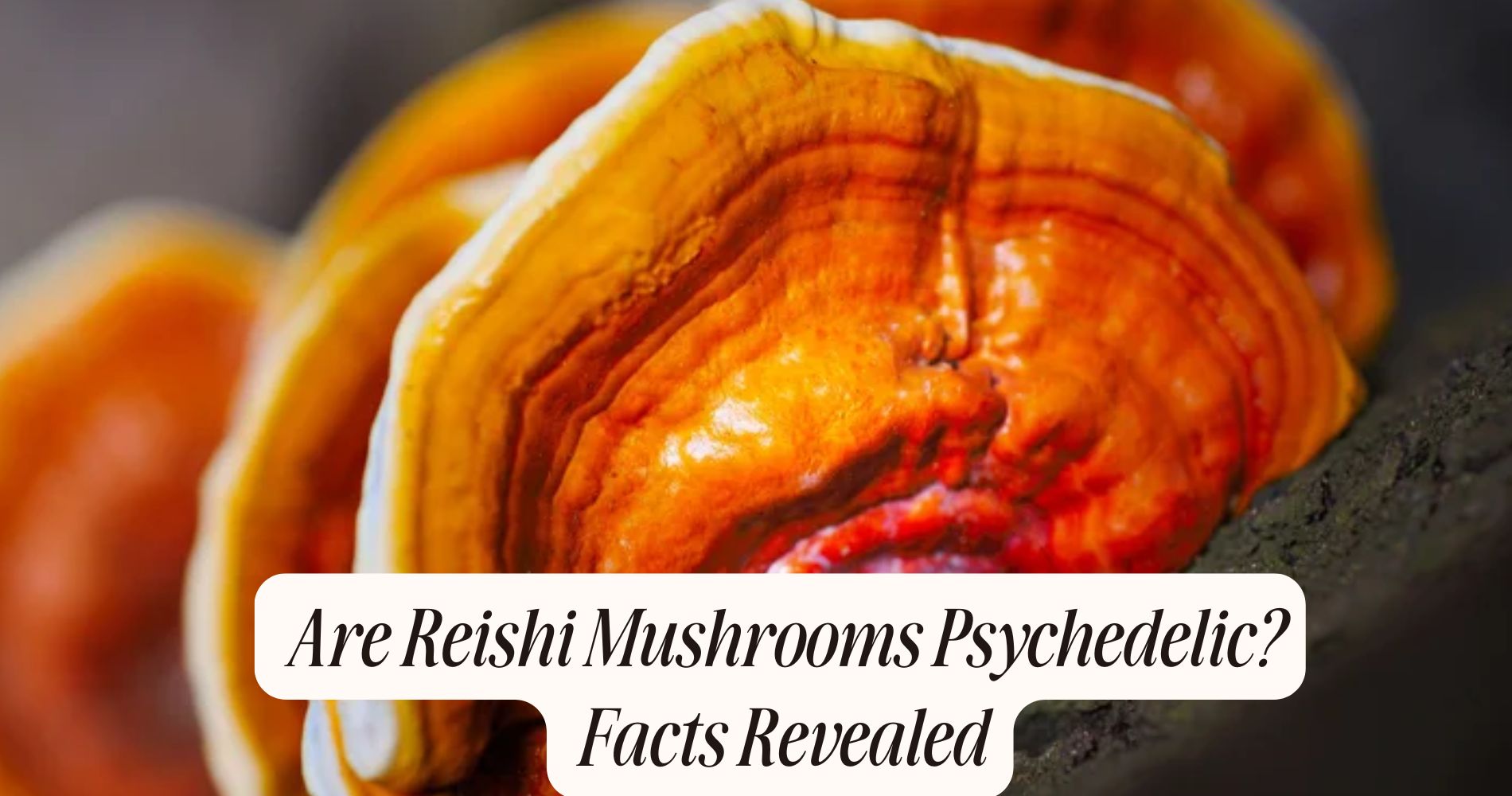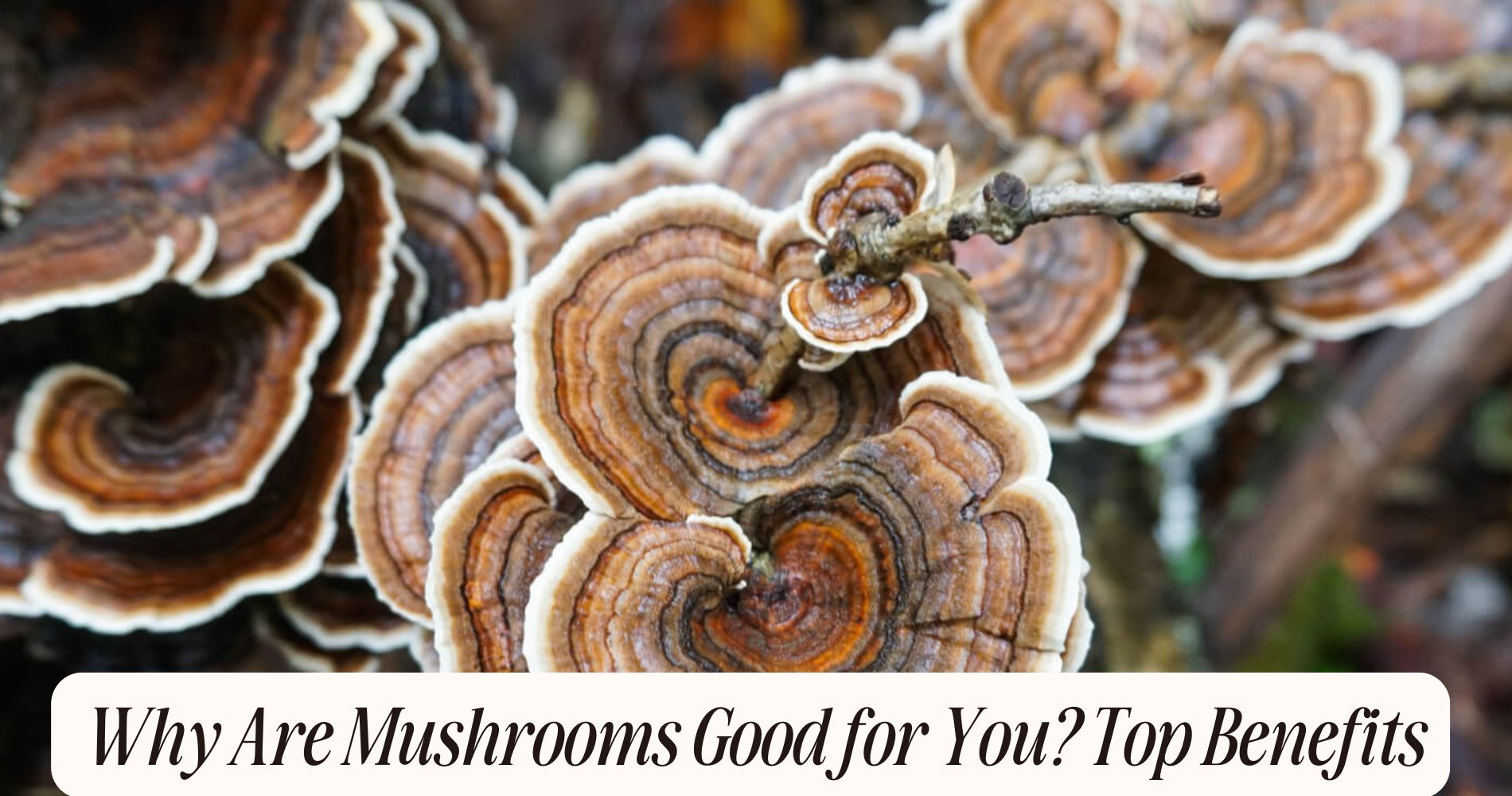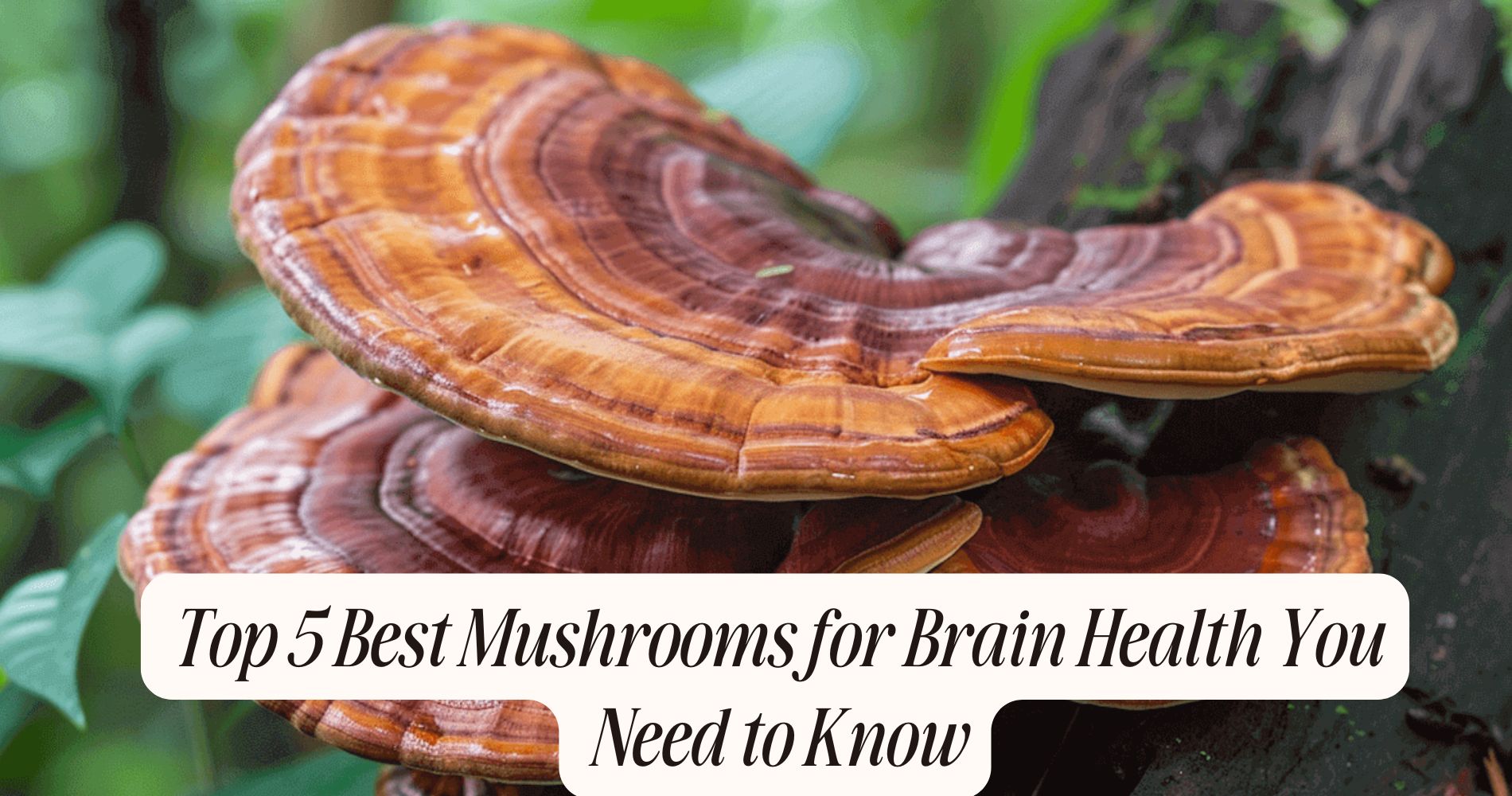
Are Reishi Mushrooms Psychedelic? Facts Revealed
Are reishi mushrooms psychedelic? Reishi mushrooms (Ganoderma lucidum) aren't psychedelic. They're mainly recognized for their health benefits, including immune support and stress reduction. While common misconceptions suggest otherwise, Reishi lacks the hallucinogenic properties found in psychoactive mushrooms like psilocybin. Their bioactive compounds, such as triterpenoids and polysaccharides, promote relaxation and cognitive clarity without inducing altered states of consciousness. Reishi has been used in traditional medicine for centuries, emphasizing wellness rather than psychedelic experiences. Understanding these distinctions is essential for accurate knowledge about their effects. If you're curious about the broader implications of Reishi's properties, you might find what follows quite revealing.
Overview of Reishi Mushrooms
Reishi mushrooms, known scientifically as Ganoderma lucidum, have been revered for centuries in traditional medicine, particularly in Asia. Their popularity stems not only from their potential health benefits but also from their impressive nutritional value.
You'll find that these mushrooms are low in calories yet rich in polysaccharides, triterpenes, and various vitamins and minerals. These compounds contribute to their reputation as a health-promoting supplement.
When it comes to cultivation methods, Reishi mushrooms can be grown on a variety of substrates, including wood logs, sawdust, and even agricultural waste. The choice of substrate can considerably impact the growth rate and quality of the mushrooms.

Typically, you can cultivate Reishi both indoors and outdoors, but controlled environments yield more consistent results. Factors such as temperature, humidity, and light play essential roles in the successful growth of Ganoderma lucidum.
Understanding the nutritional value and effective cultivation methods is important if you're considering incorporating Reishi mushrooms into your diet or wellness routine.
These aspects form the foundation for maximizing the benefits offered by this remarkable fungus.
Chemical Composition Explained
The health benefits attributed to Ganoderma lucidum largely stem from its complex chemical composition. This mushroom contains a variety of bioactive compounds, including triterpenoids, polysaccharides, and peptidoglycans. These compounds are responsible for its renowned medicinal properties, which have garnered attention in both traditional and modern medicine.
Different extraction methods, such as hot water extraction and ethanol extraction, can influence the concentration and bioavailability of these compounds. Understanding these methods is essential, as they directly affect the therapeutic applications of Reishi. For instance, polysaccharides primarily provide immunomodulatory effects, while triterpenoids exhibit significant anti-inflammatory and antioxidant properties.
Research into the pharmacological effects of Ganoderma lucidum indicates its potential in managing various conditions, from immune disorders to chronic stress.
However, it's important to take into account the safety profiles associated with its consumption. While generally regarded as safe, potential side effects can arise, especially when consumed in high doses or in conjunction with certain medications.
Historical Uses of Reishi
Historically, ancient cultures have frequently utilized Ganoderma lucidum, often referred to as Reishi, for its reputed health benefits. This mushroom has been a cornerstone in traditional Chinese medicine for over two thousand years, where it was revered as a symbol of immortality and wellness.
You may find it interesting that ancient practices involved integrating Reishi into various medicinal rituals aimed at enhancing overall well-being.
The Chinese characterized Reishi as an adaptogen, believing it could help the body resist stressors and maintain balance. In Japan, it was known as "manentake," or the mushroom of immortality, and was often consumed in powdered form, extracted in teas, or infused in alcohol.

Moreover, in ancient texts, such as the "Shen Nong Ben Cao Jing," Reishi appears prominently, highlighting its significance in herbal pharmacopoeia. Its use extended beyond physical ailments, often considered a spiritual aid for meditation and tranquility.
Psychedelic Defined
To understand psychedelics, you need to recognize their defining characteristics, which often include altering perception, mood, and cognitive processes.
The composition of substances like reishi mushrooms plays an essential role in their potential psychedelic effects on consciousness.
Psychedelic Substance Characteristics
Psychedelic substances are defined by their ability to induce altered states of consciousness, characterized by profound changes in perception, mood, and cognitive processes. You may experience these changes through various mechanisms, including serotonin receptor activation, which plays a significant role in the psychedelic properties of these substances. This activation can lead to enhanced sensory perception, emotional shifts, and altered thought patterns.
When you consume a psychedelic substance, it may result in vivid visual and auditory hallucinations, as well as a distorted sense of time and space. These effects stem from the modulation of neural circuits within the brain, resulting in altered perception that can feel transformative.
The subjective experience often varies, depending on factors such as dosage, setting, and individual psychology. Additionally, psychedelics can evoke introspective insights and emotional healing, which some users describe as spiritually significant.
However, it's essential to recognize that these experiences can also lead to anxiety or confusion in certain contexts. Understanding the characteristics of psychedelic substances helps clarify their potential risks and benefits, paving the way for informed exploration.
Reishi Mushroom Composition
Reishi mushrooms, known scientifically as Ganoderma lucidum, are composed of a complex array of bioactive compounds that contribute to their unique properties.
Key components include triterpenes, polysaccharides, and peptidoglycans, each playing a significant role in the mushrooms' potential health benefits. Triterpenes possess anti-inflammatory and antioxidant properties, while polysaccharides, particularly beta-glucans, are known for their immune-boosting effects.
When you consider reishi benefits, it's crucial to recognize that these compounds interact synergistically, enhancing overall efficacy. For instance, studies suggest that the combination of triterpenes and polysaccharides may improve cardiovascular health and reduce stress responses, making reishi a valuable addition to wellness regimens.
Reishi cultivation techniques also influence the composition of these mushrooms. Factors such as substrate selection, environmental conditions, and cultivation methods can affect the concentration of bioactive compounds.
For instance, growing reishi on hardwood logs can enhance triterpene levels compared to other substrates, thereby maximizing their therapeutic potential.
Effects on Consciousness
The effects on consciousness induced by various substances are often categorized as psychedelic when they lead to alterations in perception, mood, and cognitive processes. You might experience consciousness expansion, where your awareness transcends ordinary boundaries, allowing for insights and perspectives that normally remain obscured.
Psychedelics typically facilitate a state of altered perception, distorting sensory input and altering your sense of time and space. In this state, you may find that emotions intensify and thoughts become more fluid, revealing connections between ideas that you usually overlook. This transformation can foster a sense of unity with your surroundings, promoting feelings of interconnectedness.

However, the nature of these experiences can vary greatly among individuals based on factors like dosage, environment, and mental state.
While some substances, like psilocybin or LSD, are well-documented for their psychedelic properties, reishi mushrooms don't exhibit the same capacity for profound consciousness alteration. Instead, reishi is often associated with more subtle effects, such as relaxation and stress reduction, which may enhance overall well-being but don't lead to the same level of altered perception typically expected from classic psychedelics.
Comparison With Other Mushrooms
When comparing Reishi mushrooms to psilocybin mushrooms, you'll notice distinct differences in their effects on consciousness and historical uses.
While Reishi is primarily valued for its medicinal properties and immune-boosting effects, psilocybin mushrooms are renowned for their psychoactive experiences.
This contrast highlights the diverse roles mushrooms have played in both traditional and contemporary contexts.
Reishi vs. Psilocybin Mushrooms
In comparing Reishi mushrooms to psilocybin mushrooms, it's important to recognize their distinct properties and effects.
Reishi (Ganoderma lucidum) is primarily known for its immune-boosting and adaptogenic qualities, lacking any psychedelic properties. Its therapeutic potential lies in promoting overall wellness, reducing stress, and enhancing sleep quality. You'll find that Reishi is often used in traditional medicine for its anti-inflammatory and antioxidant effects.
Conversely, psilocybin mushrooms, which contain the psychoactive compound psilocybin, are renowned for their psychedelic properties. When ingested, psilocybin converts to psilocin, affecting serotonin receptors in the brain, leading to altered states of consciousness. This substance has gained attention for its therapeutic potential in treating mental health disorders, such as depression and PTSD, through guided psychedelic therapy.
While both types of mushrooms offer significant health benefits, their mechanisms and effects diverge sharply.
Reishi supports physical health without inducing any mind-altering experiences, whereas psilocybin actively alters perception and cognition. Understanding these differences is vital for determining which mushroom aligns best with your health goals.
Effects on Consciousness
Exploring the effects on consciousness reveals stark contrasts between Reishi mushrooms and other varieties, particularly those with psychoactive properties.
Unlike psilocybin mushrooms, which induce significant consciousness alteration and profound changes in perception, Reishi mushrooms primarily promote a state of calmness and mental clarity without the hallucinogenic effects.
When you consume psilocybin, you might experience vivid visual and auditory alterations, along with an altered sense of time and self. These effects can lead to what many describe as a spiritual awakening or deep introspection.
In contrast, Reishi mushrooms enhance your cognitive functions in a more subtle manner, often described as improving focus and mental resilience rather than distorting sensory perceptions.

While both types of mushrooms can contribute to well-being, the mechanisms are fundamentally different.
Reishi's benefits stem from its adaptogenic properties, which help your body adapt to stress and improve overall health.
Consequently, when comparing these mushrooms, it's clear that Reishi offers a supportive role in consciousness enhancement, focusing on mental clarity rather than the radical shifts in perception that other psychoactive mushrooms provide.
Historical Uses Comparison
Historically, Reishi mushrooms have frequently been revered in traditional medicine, particularly in East Asian cultures, for their health-promoting properties. In these ancient practices, Reishi is valued for its adaptogenic qualities, believed to enhance longevity and energy.
This sets it apart from other mushrooms, such as Psilocybe species, which have been utilized for their psychedelic effects in various indigenous cultures for spiritual exploration and healing.
While Reishi's primary applications focus on physical health—boosting the immune system and reducing stress—Psilocybe mushrooms have a different trajectory. They've been integral to shamanic rituals, facilitating altered states of consciousness and profound psychological insights.
Unlike Reishi, which is often consumed as a tea or extract, Psilocybe mushrooms are typically ingested fresh or dried, aiming to evoke intense psychological experiences.
Furthermore, medicinal mushrooms like Cordyceps and Lion's Mane also feature prominently in traditional medicine but serve distinct purposes.
Cordyceps is recognized for enhancing energy and athletic performance, while Lion's Mane is celebrated for its potential neuroprotective effects.
Misconceptions About Reishi
Many people mistakenly associate Reishi mushrooms solely with their potential psychedelic effects, overlooking their primary role in traditional medicine and wellness. This association stems from cultural myths that exaggerate their properties, leading to a misunderstanding of what Reishi truly offers.
Unlike other fungi known for their psychoactive compounds, Reishi mushrooms are primarily valued for their adaptogenic and immune-supporting qualities.
You might find that the scientific community has largely focused on compounds like triterpenes and polysaccharides in Reishi, which contribute to its health-promoting attributes rather than any hallucinogenic effects. This distinction is essential, as some may believe that consuming Reishi can induce altered states of consciousness, which is simply not the case.
Additionally, the misconceptions surrounding Reishi can overshadow its historical significance in Eastern medicine, where it's been revered for centuries for promoting longevity and liveliness.
Health Benefits of Reishi
Reishi mushrooms offer a range of health benefits that have garnered attention in both traditional and modern medicine. One of the most notable advantages is their ability to provide immune support. Research indicates that compounds found in Reishi, such as polysaccharides and triterpenes, can enhance the activity of immune cells, promoting a more robust immune response. This means you might experience fewer infections and improved overall health.
In addition to immune support, Reishi mushrooms are also recognized for their potential in stress relief. The adaptogenic properties of Reishi help your body adapt to stressors, reducing the physiological impact of stress. This can lead to lower cortisol levels, which are often elevated during periods of anxiety and tension.

By incorporating Reishi into your routine, you might find that your ability to cope with stress improves, leading to enhanced emotional wellbeing.
These health benefits make Reishi mushrooms a valuable addition to your wellness regimen. Whether you consume them in supplement form or as part of a tea, their immune-boosting and stress-relieving properties can contribute to a healthier lifestyle.
Current Research Insights
Exploring current research on Reishi mushrooms reveals a wealth of insights into their pharmacological properties and therapeutic potential. Recent studies have focused on the bioactive compounds found in these mushrooms, particularly triterpenoids and polysaccharides, which exhibit various health benefits.
While Reishi is primarily known for its immune-boosting and anti-inflammatory effects, the exploration of its mind-altering properties is gaining traction. Some recent studies suggest that certain compounds in Reishi may influence neurotransmitter activity, potentially affecting mood and cognition.
However, it's important to highlight that these effects aren't comparable to classic psychedelics. Instead, the compounds may promote a state of relaxation and mental clarity, rather than inducing hallucinations or profound alterations in perception.
Additionally, researchers are investigating the synergistic effects of Reishi when combined with other medicinal mushrooms, which may enhance its therapeutic outcomes. Understanding these interactions is essential for maximizing the potential benefits of Reishi.
As research continues to unfold, you'll gain a clearer picture of how Reishi mushrooms could contribute to mental health and well-being, though definitive conclusions on their mind-altering effects remain elusive.
Cultural Significance and Beliefs
Throughout history, various cultures have revered mushrooms for their medicinal and spiritual properties, with Reishi often regarded as a symbol of longevity and vigor in traditional practices.
In many Asian cultures, traditional beliefs incorporate Reishi into cultural rituals aimed at promoting health and well-being. Its spiritual symbolism is deeply embedded in folklore narratives, where it's often associated with immortality.
Reishi mushrooms have been used in medicinal practices for centuries, thanks to their perceived health benefits. This historical reverence extends to community significance, as people gather to share knowledge about its uses and benefits, reinforcing social bonds.
Artistic representations of Reishi often appear in paintings and sculptures, reflecting its esteemed status in various cultures.
Moreover, the mushroom's integration into wellness practices showcases its enduring legacy. The ongoing interest in Reishi's properties highlights a blend of ancient wisdom and modern health trends.
Unlock the Power of Reishi with Well Gummies SUPER MUSHROOM GUMMIES
While answering the question are reishi mushrooms psychedelic, it's clear their true power lies in their calming and immune-boosting benefits. With Well Gummies SUPER MUSHROOM GUMMIES, you can enjoy the benefits of reishi and nine other functional mushrooms in one convenient, tasty gum chew. These vegan gummies help enhance focus, balance energy, and support overall well-being without any psychedelic effects.
Flavored with fresh wild berries, they’re as delicious as your favorite candy, with no jitters or crashes. Elevate your health the easy way with Well Gummies!
Frequently Asked Questions
Can Reishi Mushrooms Cause Hallucinations or Altered States of Consciousness?
Reishi mushrooms aren't known for inducing hallucinations or altered states of consciousness. Many myths surround their effects, but scientific evidence doesn't support claims of psychedelic properties. You're unlikely to experience such effects with Reishi.
Are There Any Side Effects of Consuming Reishi Mushrooms?
When consuming reishi mushrooms, you might experience mild side effects like digestive upset or allergic reactions. To maximize reishi benefits, stick to recommended reishi dosage, ensuring you balance potential effects with the desired health outcomes.
How Can I Incorporate Reishi Mushrooms Into My Diet?
You can incorporate reishi mushrooms into your diet by using various cooking methods like simmering in soups or steeping in teas. This enhances their health benefits, including immune support and stress reduction, while adding unique flavors.
Is It Safe to Combine Reishi Mushrooms With Other Supplements?
It's essential to take into account dosage recommendations when combining reishi mushrooms with other supplements. You should consult a healthcare professional to discuss potential interactions, ensuring safety and maximizing the benefits of your supplement regimen.
Where Can I Buy High-Quality Reishi Mushroom Products?
You can buy high-quality reishi mushroom products from trusted brands online or at health stores. Always check product reviews to guarantee you're selecting effective and safe options for your health and wellness needs.
Conclusion
To sum up, reishi mushrooms aren't psychedelic; their chemical composition lacks the compounds responsible for hallucinogenic effects. Instead, they're valued for their health benefits, including immune support and stress reduction. Understanding the distinctions between reishi and true psychedelic mushrooms clarifies common misconceptions. Ongoing research continues to explore their therapeutic potential, reinforcing their significance in both traditional and modern medicine. Embracing accurate information about reishi can enhance your appreciation of this fascinating fungus and its cultural importance.




